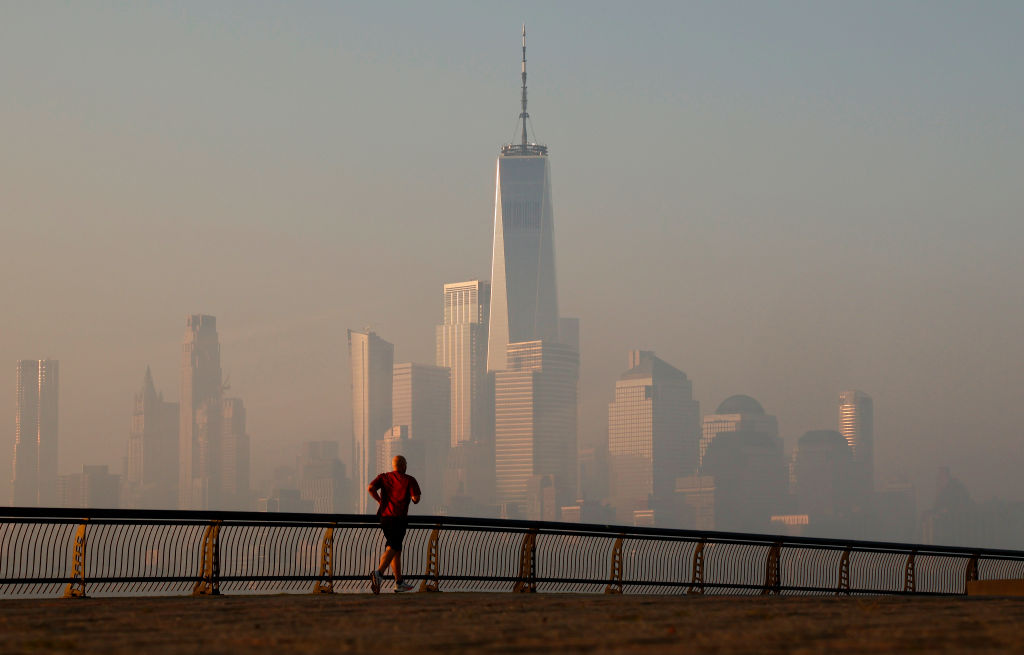Global failure to adapt to climate change is taking a toll on people’s lives and is responsible for millions of deaths every year, according to a new report from The Lancet.
The Lancet today published its 9th annual “Countdown on Health and Climate Change” report, led by University College London and produced in collaboration with the World Health Organization. It aims to provide a comprehensive breakdown of the connections between climate change and health.
[time-brightcove not-tgx=”true”]
“This year’s health stocktake paints a bleak and undeniable picture of the devastating health harms reaching all corners of the world—with record-breaking threats to health from heat, extreme weather events, and wildfire smoke killing millions. The destruction to lives and livelihoods will continue to escalate until we end our fossil fuel addiction and dramatically up our game to adapt,” Marina Romanello, executive director of the Lancet Countdown at University College London, warned in a press release.
Twelve of the 20 indicators for the health risks and impacts of climate change in the report set concerning new records—showing that the health impacts caused by our changing climate have reached unprecedented levels that cannot be ignored. The indicators studied include extreme heat, weather events, food security, and pollution.
Weather events, like extreme heat and wildfires, are becoming more common due to climate change and are having a deadly impact on the lives of thousands. The number of heat-related deaths have surged 23% since the 1990s, now reaching 546,000 a year, according to the report. In 2024, the hottest year on record, the average person was exposed to a record 16 additional health-threatening hot days, the report found. Air pollution from wildfire smoke was also linked to a record 154,000 deaths last year.
Delays in the adoption of clean energy are also taking a toll on our health. Each year, 2.5 million deaths are attributable to the air pollution that comes from continued burning of fossil fuels. Many of these deaths could be prevented by the transition to clean energy—air pollution resulting from the household use of dirty fuels and technologies across 65 countries resulted in 2.3 million deaths in 2022, according to the report. Energy related emissions have reached new highs, the report says, with the world’s largest fossil fuel giants having increased their projected production to a scale three times greater than a liveable planet can support. According to the Paris Agreement, the world must peak global emissions before this year at the latest and decline 43% by 2030 in order to limit global warming by 1.5°C above pre-industrial levels.
The report calls on leaders to focus on green solutions that can also improve health outcomes, and warns that political backsliding on climate commitments will only cause more harm. “Scarce financial support for adaptation remains a key barrier, and data in this report shows it is still grossly insufficient to cover the financial needs disclosed by countries,” said Romanello. “A political shift towards reduced foreign aid support from some of the world’s wealthiest countries, further restricts financial support for climate change action, leaving all populations increasingly unprotected.”
In spite of the rollbacks on climate action in the U.S., many governments and communities are taking action globaly—and reaping the health benefits that come along with it. According to the most recent data the study analyzed, an increased shift away from coal, particularly in wealthy countries, prevented an estimated 160,000 premature deaths annually between 2010 and 2022, and renewable energy generation also reached record-highs in 2022.
It’s just one example of how combating climate change can improve health outcomes for people around the globe, the report’s contributors say.
“Climate change action remains one of the greatest health opportunities of the 21st century, also driving development, spurring innovation, creating jobs, and reducing energy poverty,” Tafadzwa Mahbhaudi, director of the Lancet Countdown Africa said in a statement. “Realizing the myriad benefits of a health-centered response requires unlocking so-far untapped opportunities to mitigate climate change and build resilience to the impacts already being felt.”

